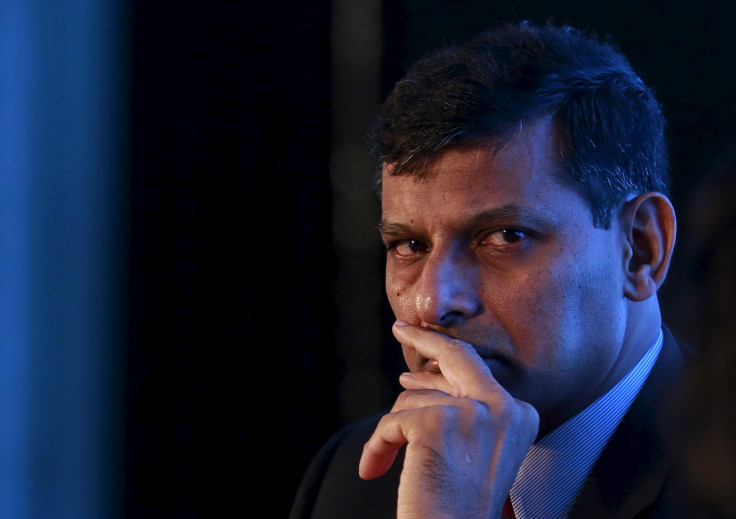India's Central Bank Pledges To Contain Stock Market, Rupee Losses

Updated as of 7:09 a.m. EDT: India's stock markets and currency saw sharp downturns Monday, fueled by fears of an economic slowdown in China.
The Sensex and Nifty indices both closed almost 6 percent lower from opening levels, and the rupee lost 0.6 percent of its value against the U.S. dollar to 66.6 rupees to the dollar -- a two-year low. The Sensex fell to a five-year low.
Original story:
India's stock markets saw major losses after opening Monday, joining a list of markets worldwide that are reacting to concerns over China’s economic instability and slowdown.
The BSE Sensex and the Nifty, India’s two biggest stock exchanges, crashed nearly 4 percent Monday, and the rupee slumped 1 percent to reach a two-year low against the dollar. As of 2:28 a.m. EDT, the Sensex was trading down 3.65 percent at about 26,370 points, and the Nifty had lost 3.75 percent to reach about 8,000 points. The Indian rupee had fallen about 0.4 percent to about 66.5 rupees against the dollar.
However, Reserve Bank of India Governor Raghuram Rajan said Monday that the country was in a better position than many other emerging markets. He said that India’s low inflation and strong economic fundamentals would inspire confidence in investors. He added that the central bank would be ready to tap into its reserves to ease the volatility if necessary.
"Many of you watching markets this morning worried about volatility... India is in a good condition. RBI won't hesitate to intervene on rupee," Rajan said, according to NDTV.
India's Finance Minister Arun Jaitley also sought to quell worries about India's finances, stating the the uncertainty would have only a transient impact on the country, according to reports.
Monday’s fall was triggered by ongoing volatility in China’s stock markets, which have lost about 30 percent of their value since peaking in early June. The rupee weakened on the news that China devalued its yuan by about 2 percent.
Agum Gupta, a trader at Standard Chartered bank, said that he expected the rupee to strengthen against the U.S. dollar later in the week. "We will keep an eye on supply of USD from local government banks but the move in global markets will remain key for the pair at the moment," he told Moneycontrol.
© Copyright IBTimes 2025. All rights reserved.




















